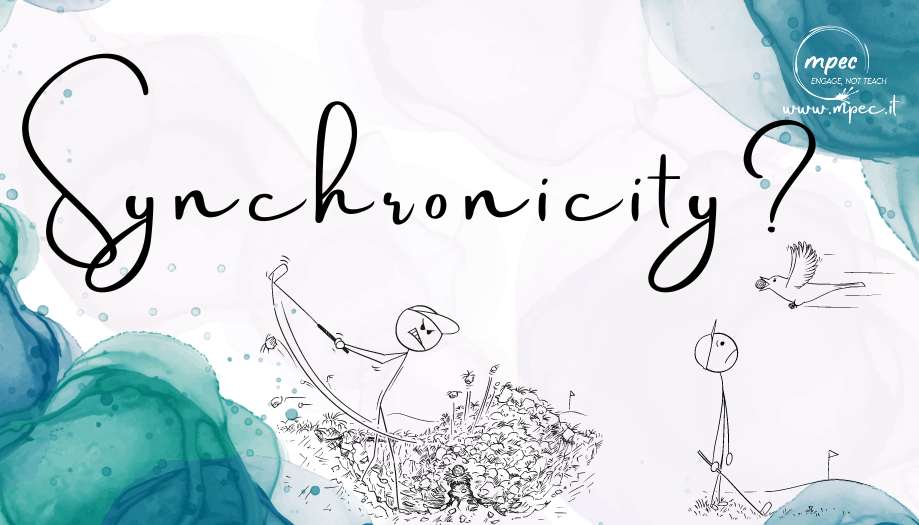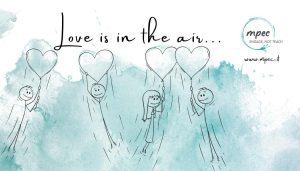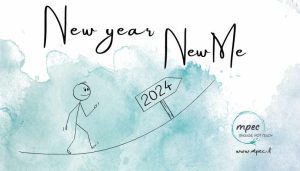Welcome to the MPEC Conversation Club, where today’s journey delves into the intriguing world of synchronicity and its profound impact on both our professional and personal realms. As we explore this captivating topic, we’ll uncover how meaningful coincidences can significantly enhance our emotional intelligence, foster self-awareness, and open the gateway to unparalleled opportunities for growth and development.
Synchronicity, a term first introduced by Carl Jung, suggests that events are “meaningfully coincidental” if they occur with no causal relationship, yet seem to be meaningfully related. In our discussion, we’ll dive into how these serendipitous moments can influence our decisions, relationships, and even our success in mastering new skills, such as the English language.
In Preparation: Read This Short Article To Understand Synchronicity
You can also watch this AMAZING video which links synchronicity to biases and neuroscience
Conversation Club by MPEC: Let’s Practice Speaking in English!
Set 1: Exploring Synchronicity
- Have you ever experienced a moment of synchronicity that changed your perspective on a problem or situation?
- How do you think recognising synchronicity can impact decision-making in business or personal growth?
- Can you share an instance where a seemingly random event led you to a significant insight or opportunity?
Grammar Structure: Present Perfect Continuous
- Use to describe actions or situations that started in the past and have continued up to the present or were happening until recently.
- Example: “I have been thinking about an example of synchronicity in my life.”
Phrasal Verb: “Come across”
- Definition: To find or encounter something or someone by chance.
- Example: “I came across an old friend at the conference, which led to a new business opportunity.”
Idiom: “A stroke of luck”
- Definition: A sudden and unexpected instance of good fortune.
- Example: “Finding that book was a stroke of luck; it had the exact information I needed for my project.”
Set 2: Impact on Personal and Professional Growth
- How do you think synchronicity can aid in personal development or in learning new skills, such as mastering English?
- In what ways have you used or could you use synchronistic events to foster your career or business growth?
- Have you ever had a ‘gut feeling’ about a decision that turned out to be correct? Do you think this is related to synchronicity?
Grammar Structure: Modal Verbs for Speculation
- Use to speculate about past or present situations, especially when pondering the meaning behind synchronistic events.
- Example: “It might have been synchronicity that led me to meet my mentor at just the right time.”
Phrasal Verb: “Tie in”
- Definition: To connect or find a connection between two or more things.
- Example: “This opportunity ties in perfectly with my goal to expand my business internationally.”
Idiom: “Connect the dots”
- Definition: To understand something by piecing together seemingly unrelated pieces of information.
- Example: “After reflecting on the events, I was able to connect the dots and see the path forward.”
Set 3: Synchronicity in Daily Life
- Can you recall a daily occurrence that seemed trivial at the time but, in hindsight, appears to be synchronistic?
- How do synchronistic events influence your feelings or decisions in your everyday life?
- What role do you think synchronicity plays in relationships, whether personal or professional?
Grammar Structure: Conditional Sentences
- Use to discuss hypothetical situations and their possible outcomes, often relevant when discussing the potential impacts of synchronicity.
- Example: “If I hadn’t met her that day, I wouldn’t have discovered this career opportunity.”
Phrasal Verb: “Look back on”
- Definition: To think about something that happened in the past.
- Example: “When I look back on those events, I can see how they were all connected.”
Idiom: “The bigger picture”
- Definition: A broader or more comprehensive perspective on a situation.
- Example: “Understanding synchronicity helps you see the bigger picture in both your personal and professional life.”
- #BusinessDinner #ProfessionalEtiquette #NetworkingTips #CommunicationSkills #BusinessCommunication #CorporateDining #DinnerEtiquette #ProfessionalDevelopment #BusinessTalk #EffectiveCommunication #NetworkingDinner #BusinessEtiquette #DiningTips #CorporateEvents #LeadershipSkills #CareerGrowth #BusinessMeeting #ProfessionalNetworking #BuildingConnections #BusinessStrategies #TeamDinners #BusinessLeadership #CorporateDiningEtiquette #BusinessConversation #ProfessionalManner #WorkplaceEtiquette #SuccessfulNetworking #BusinessSocials #CorporateNetworking #EffectiveNetworking




